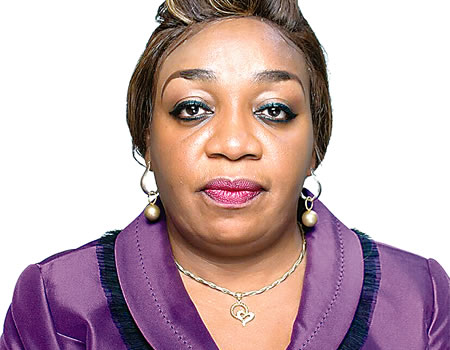
In this interview, COLLINS NNABUIFE speaks with the Managing Director of Nigerian Agriculture Insurance Corporation, Mrs Folashade Joseph on her activities on the agricultural sector, especially in the area of making farmers embrace insurance.
WHAT is the core mandate of your organisation?
There is an agriculture scheme which our company is executing for the Federal Government and it is to encourage farmers to take up insurance. As you know, insurance is an abstract project, you don’t see what you are buying; it is difficult for the farmers to understand they should increase their cost of production, but it is their understanding. NAIC is putting in place workshops and seminars to let the farmers know the basic risks associated with farming, and they buy an insurance which costs very little. They will be at peace that they are farming and their risks will be covered by insurance. Like I said, it is just a little money that you won’t even feel it and we cover all kinds of risk. We covers drought, fire, excessive rainfall and these are natural occurrences in farming. If farmers take insurance with NAIC, they are assured that if the yield they get is less than what they expected, then NAIC will pay the insurance, so they can be sustained in farming.
What is the attitude of farmers towards insurance?
The farmers don’t understand what insurance is, they just believe that taking an insurance is going to increase their cost of production. They don’t see it, so they don’t understand it. To them it is an additional cost, so attitude of farmers is very poor towards insurance. But it is our duty in NAIC to develop and implement schemes for sustainable interaction with the farmers in forms of workshops, seminars to enlighten them to know the benefits of taking insurance.
What is your role in the recent visit to Moroccan government?
We had an agreement with the Moroccan government sometime in December and President Muhammadu Buhari did witness the signing of an agreement between the Moroccan government and the Nigerian government, and the objective is mainly to encourage farmers. The objective of the Nigerian government now is to ensure that there is food sufficiency by the year 2020. Moroccan government is very experienced in agriculture and farming and we want to also buy in, and as insurance, they have Mandarin in Morocco who is very experienced in Ariel yield, index insurance. It is a new product in Nigeria, but that is where technology is going and we also want to exploit it because it will be beneficial to farmers.
It tells farmers that if you expect a particular tonnage and you don’t get it because of weather conditions, the farmers will not need to worry because the insurance will cover them and it will make up for the deficit so that they can continue in farming.
So it gives farmers the confidence to continue in farming and agriculture is what everyone should be encouraged to go into because they said a hungry man is an angry man. Once there is food, the rest of the story is easy.
Is there any form of enlightenment to make the farmers aware of the benefits of insurance?
NAIC has developed and still developing different ways like workshops, seminars to enlighten the farmers, to tell them the importance of insurance, to tell them that when they take insurance from NAIC, it assures them of confidence. It is going to sustain their vocation as farmers. We used to do indemnity type of insurance, that is to say that if a farmer put in N100,000 in his farm, and there is a natural disaster, you cannot get more than that N100,000 in form of insurance. But with the new index insurance that we want to give to the farmers, the weather index insurance, it means that if you expect a particular tonnage for a particular hectare and you don’t get it, then the insurance will pay you enough to continue to the expected yield that the farmer should get, and that is better because it will sustain the farmer in agriculture.
WATCH TOP VIDEOS FROM NIGERIAN TRIBUNE TV
- Let’s Talk About SELF-AWARENESS
- Is Your Confidence Mistaken for Pride? Let’s talk about it
- Is Etiquette About Perfection…Or Just Not Being Rude?
- Top Psychologist Reveal 3 Signs You’re Struggling With Imposter Syndrome
- Do You Pick Up Work-Related Calls at Midnight or Never? Let’s Talk About Boundaries






